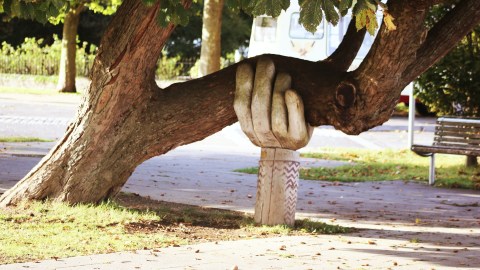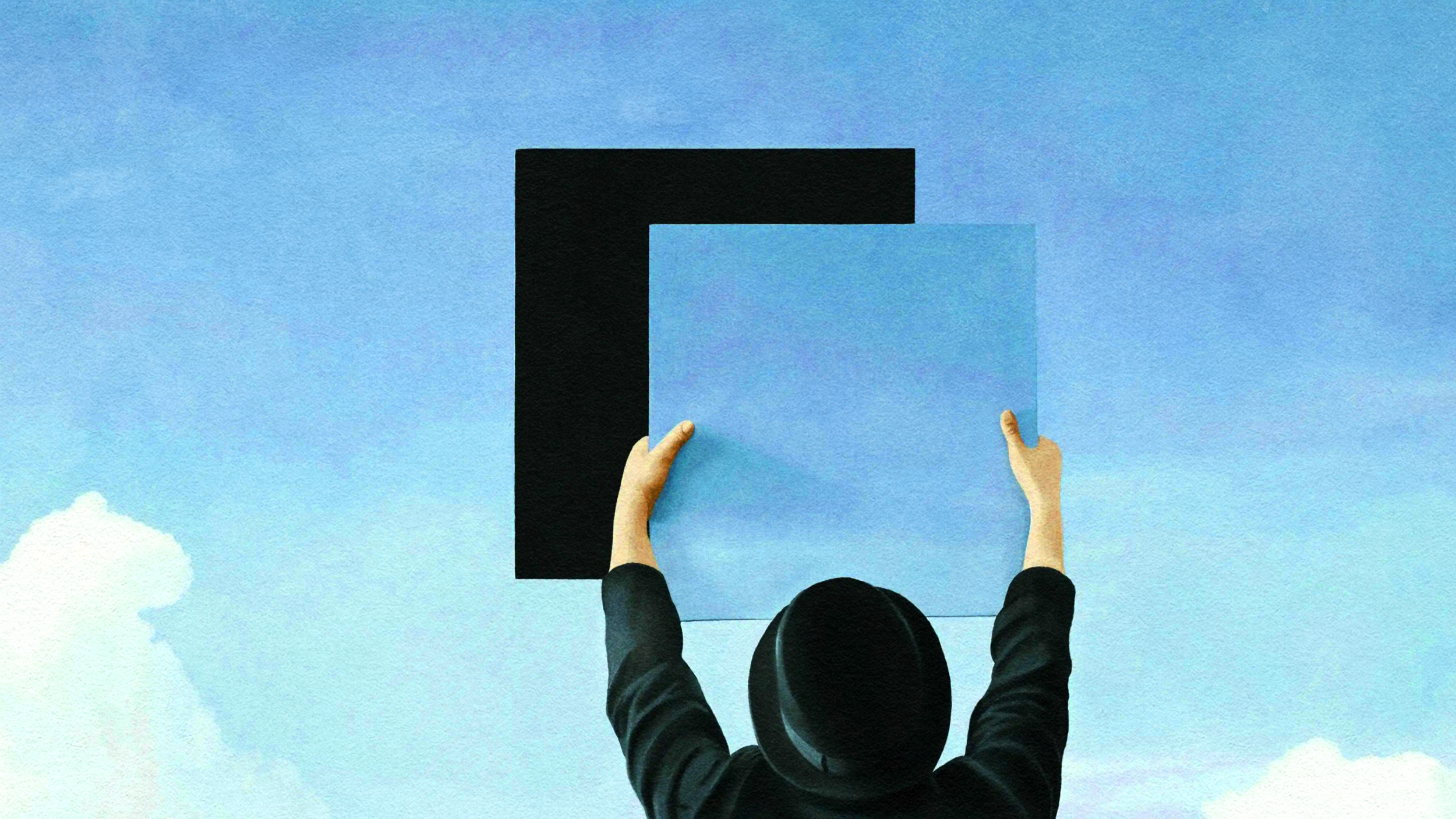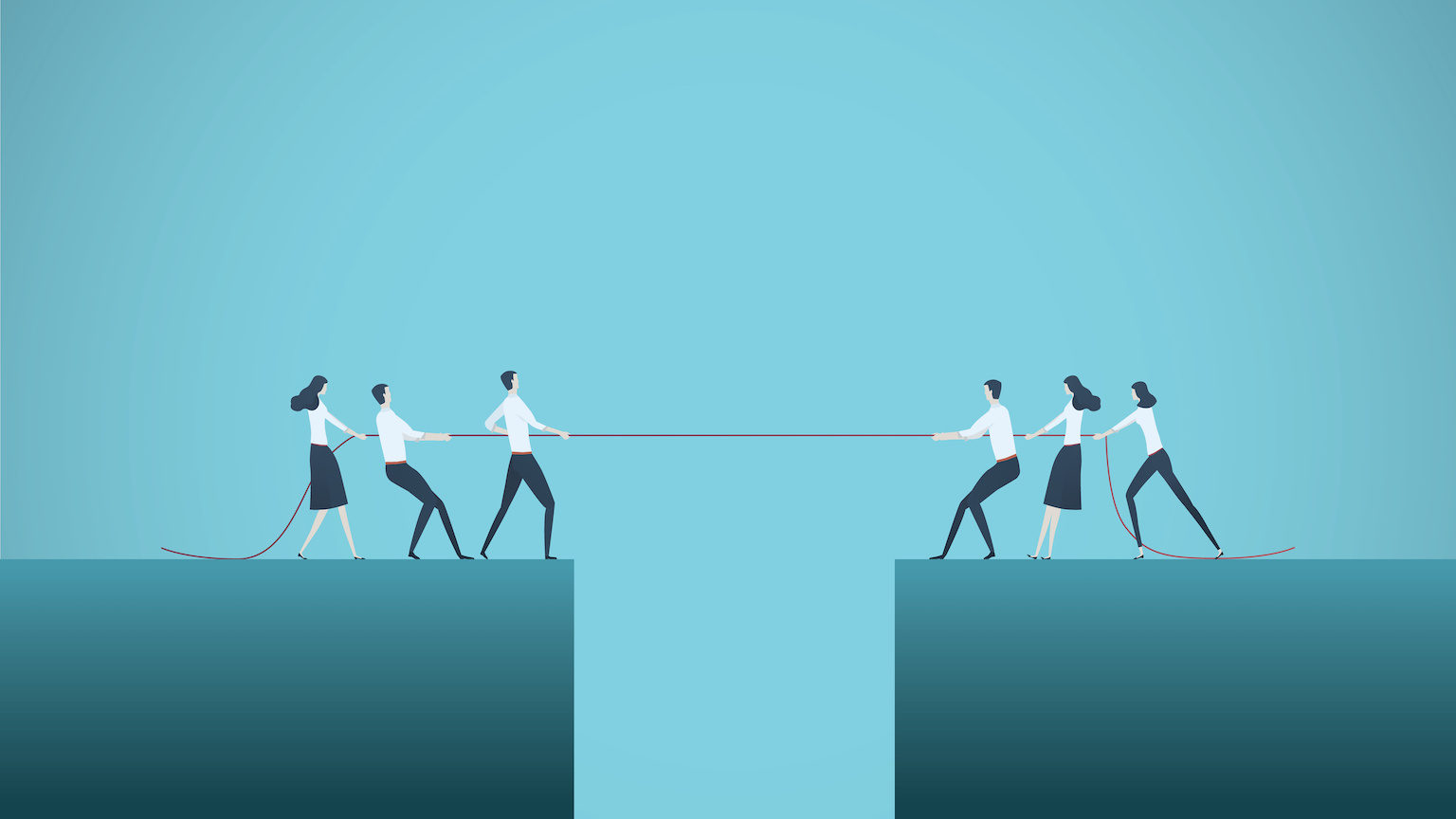Kind by nature: Have faith in humanity

Photo by Neil Thomas on Unsplash
Optimism is what runs the world, and cynicism only serves as an excuse for the lazy.
Evil is not inherent to our nature. We have achieved so much because we are friendly and decent. The radical thinker Rutger Bregman paints a new, more beautiful portrait of humanity.
Try standing in front of the mirror and remember the worst things ever done – by you personally, and by Homo sapiens as a whole. And smile, because history shows that we are doing much better than you think. This subversive idea belongs to a Dutch historian, writer and TED lecturer. In his new book, Humankind:AHopefulHistory, he finds out whether the conviction that humans are selfish, hostile and destructive by nature is actually true. And if we turn out to be intrinsically good after all, what would it change?
Rutger Bregman already shook up the minds of politicians, businesspeople and the general public several years ago in his book Utopia for Realists And How We Can Get There, in which he argued that a better world could be built straight away. Bregman’s critics consider him a naïve fantast, but many CEOs and national leaders are seriously considering introducing his revolutionary postulates, such as much shorter workdays and universal basic income. In his new book, Bregman goes even further, proposing that we turn the world upside down. More precisely, he wants to put straight the image of humankind as created by philosophy, science and the media. And to change our behaviour for the better.
The author has created a daring, fresh story, filled with fascinating examples, analyses and discoveries, and constructed it as if it were an investigation. The accused was Homo sapiens, a species with alleged murderous tendencies since the dawn of time, seeing his own viciousness reflected in everything and everyone around. Bregman revised the evidence in question and tore the lining of this negative story, reaching deep into the discoveries of archaeologists, historians and biologists. He bursts through the philosophy of Hobbes, who had a defining influence on the image of humans, perceived as warmongering species who must be controlled by a powerful, Leviathan-like government at all times. Bregman uncovers swindles ensconced in the most famous psychological theses of the 20th century, laying bare the manipulations of such celebrities as Philip Zimbardo and Stanley Milgram, whose famous experiments are considered the final evidence that a Nazi and sadist is lurking in every one of us. Yet years later, those claims turned out to be a sham.
Bregman crushes the myths built by bestselling authors such as Nobel Prize laureate William Golding, best known for his novel Lord of the Flies, and by big media like The New York Times. He boldly debates the most popular authors of recent years: Steven Pinker, Yuval Noah Harari and Malcolm Gladwell. With the energy of a young and fearless researcher, he dug through all the critical files, finding new evidence in old cases. The turn of perspective is so surprising that Humankind keeps the reader on their toes. Whatever you think about humans, Bregman will derail your viewpoint. And there’s probably nothing as baffling as how much we struggle with accepting the idea that we are better than we thought we were. The thought that most of us are intrinsically good turns out to be a challenge, as if the bar has suddenly gone higher. Such a positive image makes us want to try harder.
Bregman uses the phenomenon we call the Pygmalion effect, meaning that we become what others see in us. Those rats that researchers assumed to be intelligent did better with the tasks they encountered. Children with supportive parents and teachers do better at school and in life. And people who see good in themselves, start to cultivate it. Bergman believes cynicism to be an avoidance strategy.
The belief that people are vicious and that the world is going to the dogs justifies passivity. Optimism, however, has an opposite effect – it requires us to strive for kindness, trust, and generosity in an active way.
The common belief that crisis awakens the most primitive instincts in people is not reflected in the facts, writes Bregman. He calls it the greatest misunderstanding in history. “No, no, you go first…”, “Please, you go ahead, I’ll follow you,” said the people leaving the towers of the World Trade Center, when their offices were ablaze and the building was starting to melt. There was no panic; almost everyone remained polite. This was confirmed by recordings and testimonies from the survivors.
On Christmas Eve of 1914, 100,000 soldiers, mostly German and French, left the trenches to meet. They exchanged gifts and sang carols. For years to come, most of them were shooting high above their enemies’ heads, so as not to wound them. The same thing happened at other wars, before and after that one. After the Battle of Gettysburg in 1863, 90% of the guns were loaded and unused. The murderous instinct is a myth, Bregman insists.
Hitler’s air force raided London in 1940 to break the spirit of the British. Instead, people put messages in their windows, such as: “More open than usual” or “Windows broken, booze still strong!” The English kept calm. Churchill was proud, but soon he made the same mistake, assuming he could break the Germans with air raids instead. After the bombing, Dresden responded in the same spirit as London – with acts of everyday kindness, help and optimism.
After the war and annihilation, many sought an answer to what made the German soldiers so persistent and determined. The reasons were said to be blind obedience and fanaticism. And yet, Bregman reveals data that was previously omitted and passed-over in silence: the main force keeping the soldiers going was the sense of solidarity and camaraderie. They didn’t want to abandon their mates, with whom they grew up and trained. When presented in such light, those alleged beasts suddenly start looking a lot like boys from the yard. Like ourselves, even.
Think again, insists the Dutch historian, and see how tragedy brings out the best in people. Evil only exists in us when it masks as good and nestles in our system of beliefs as a sense of righteousness, something important to the world. And don’t believe the media, he warns, because they feed on extremes. The media distort reality and teach us to believe in evil. For example, take the famous story of the New York woman named Kitty who was stabbed and died alone in front of her house in 1964, watched by her 38 indifferent neighbours, out of whom just one called the police, the rest declining to get involved. That’s the version promoted by The New York Times, with alarming words about an “epidemic of callousness”. The facts, as shown by Bregman, are very different. Most of the witnesses didn’t see the attack – they just heard the noise. Half of them called the police, and Kitty died in her friend’s arms. What happened to the perpetrator? He was caught soon later when he was leaving someone’s apartment carrying a TV, and an alarmed neighbour stopped him. People can feel, express concern, and help others – those are the facts on which the media rarely report. There are over a dozen such spectacular deconstructions in Bregman’s book, using new evidence he pulls out like trump cards, one after another.
We follow the rules of kindness and cooperation not only in times of crisis, but also in everyday life. Bregman echoes other researchers who describe the phenomenon of ordinariness as the dominant truth about the world. He refrains from promoting naïve theses, and the strength of his reasoning lies in returning to the right proportions. There is more good in the world, so much of it that we take it for granted and forget to define it. In his view, society is not founded on obedience to the government, which makes us aggressive and insensitive, but on the human trust. That’s why real democracy (as opposed to the current rule of sociopath elites over the sensitive majority) is possible. More examples? In Venezuela and Brazil, budget management in many cities was passed over to the inhabitants. As a result, they saw an increase in social investments and education, while poverty and crime plummeted. In Norwegian prisons, guards and inmates spend time together, share duties and wear no uniforms. The outcomes were shorter times of imprisonment, fewer re-offenders, and a lot of savings. And so on.
Humankind rearranges the mind like no other book published over the past few years. It should be mandatory reading in the 21st century, as it gives some balance to another milestone in the human autobiography, the bestselling Sapiens by Yuval Noah Harari from 2014. Bregman insists that optimism is solidly founded on facts. It is not a dream, just a new realism.
Translated from the Polish by Aga Zano
Reprinted with permission of Przekrój. Read the original article.





